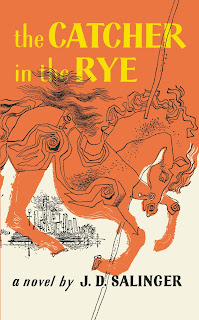Today were the nationwide "No Kings" protests across the country. I don't have a lot to say about the protests themselves, but I am a little curious how the protestors selected themselves.
I assume that if I asked a typical protestor "Why are you out here holding a sign today?" the immediate answer would be "something something Donald Trump something something." But suppose I pressed farther. Even if you disagree with him, why take to the streets? Where did you get the idea that this was a good way to respond to bad politial decisions by those in power?
I assume that at some point, honestly, the answer would frequently be, "Well I've always identified as a rebel. I've always supported the Little Guy against the faceless machines that threaten to crush him. That's just who I am."
OK, that's interesting. Always? So ... when you were three years old? Eight years old? Twelve years old? In a few cases the answer will still be, "Yes, always." (And honestly, some three year-olds can be pretty obstreperous.) But in a lot of cases the answer will be something closer to, "Well of course I had a conscience from an early age. But I really learned to lean into my identity as a rebel when I was in college."
There were a lot of old people at the "No Kings" protests, especially compared to (let's say) protests in the 1960's, which were almost universally manned by the young. This means that a lot of today's rebels are my age, or even older. So I think I have an idea what their college years were like.
There was an assumption back then that college was the time when you rebelled against your parents. The Catcher in the Rye was almost quaint and old-fashioned by that time; but the basic message—that adults were phonies and there was no salvation in that world—was a commonplace.
As an aside: I remember that my college friends assumed I must be conservative because I regularly wore a belt to hold up my pants, and because I wore socks under my shoes. (It sounds like I'm kidding, but I'm not!) Of course, they tolerated these eccentricities, because they liked me anyway. It also meant that when their parents suddenly arrived on campus demanding to meet "some of their friends," they always sought me out. Maybe my hair was a little too long, but I shaved regularly, I showered once a day, and I was never hungover or drugged out; so I could make a good impression.
Notice what this means. It means that a large fraction of today's rebels—especially the geriatric rebels, but I assume the same dynamic has molded the younger ones too—rebelled against their parents and "societal expectations" at exactly the time that society expected them to rebel. And they did it, largely, because all their friends were doing it. In other words, their lifelong stance or identity as a Rebel was in fact dictated by societal expectations. By standing out there on the streets holding signs, they are conforming to the most restrictive of the possible identities offered to them by their elders.







